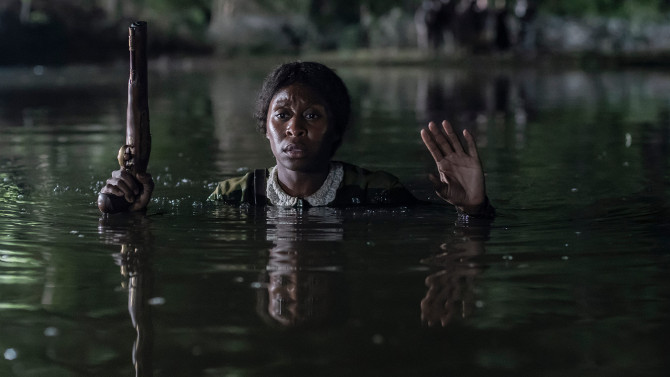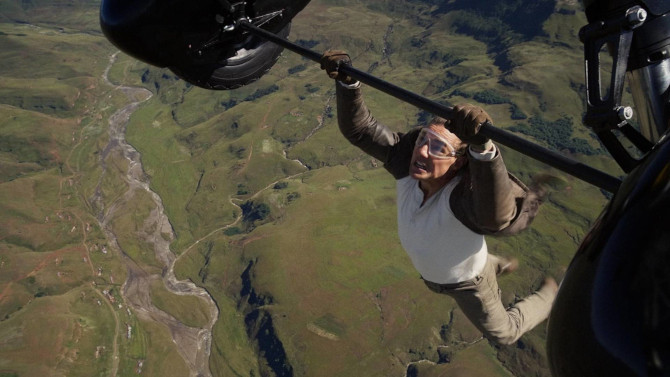
An Impossible Mission
How do you wrap up a franchise like Mission: Impossible? That is, if this even is the final installment... as they’ve made it sound (while at the same time, stars not named ‘Tom Cruise’ pipe up and suggest that might not be so). It has been twenty-nine years, with different writers and visionary directors – from twisty Brian De Palma and the action hair stylings of John Woo, to the lens flares of J.J. Abrams and animation expert Brad Bird, it was only about ten years ago that the franchise decided to opt for The Usual Suspects scribe Christopher McQuarrie for the final four. To return to that opening question once more, you could end with a Sopranos’ style cliffhanger, simply make another entertaining movie like the many before – like Everybody Loves Raymond did it with its final episode, or try to tie everything up in a neat little bow by bringing everything together as the Daniel Craig era did with James Bond. Well, it is definitely more along the lines of the latter example, with some distinct differences.
-
First Names Only, Please
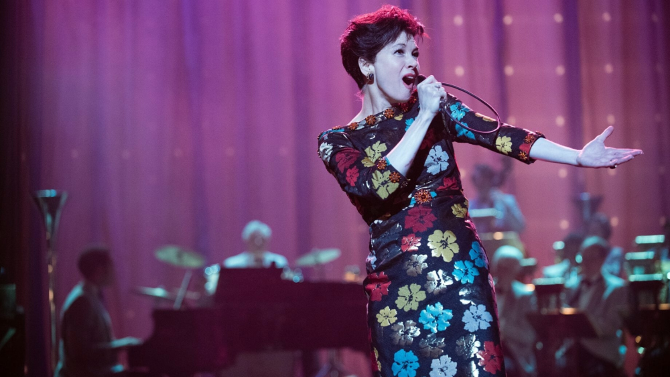 JudyHarrietJanuary 31, 2020
JudyHarrietJanuary 31, 2020The Academy Award season is creeping upon us again. . . and as I am running out of time, I’ve decided to combine and condense two reviews that feature stellar Lead Actress performances of 2019 (that also happen to be about real women), Rupert Goold’s Judy and Kasi Lemmons’ Harriet. Judy tells the tragic story of Judy Garland, flashing back and forth between the way she was mistreated during the filming of The Wizard of Oz, and how that, along with poor life choices, brings her to a point where she is forced to take an extended stay in London in 1968 (away from her children – who she dearly loves) in order to earn enough money to be able to purchase a home (so that she might win custody against her ex-husband).
-
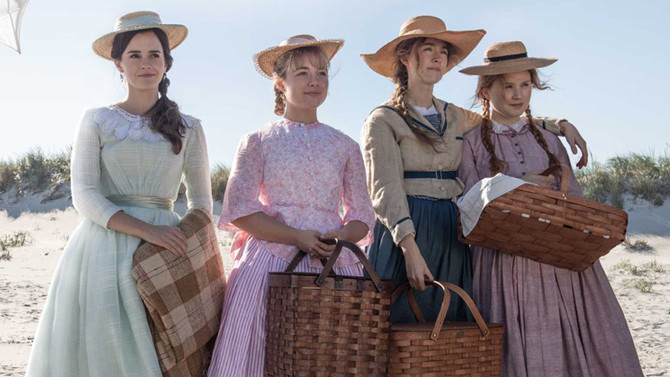
Marching On
Little WomenJanuary 24, 2020You just can’t beat a good idea. . . which is why most iconic stories have found their way onto the silver screen more than once – case in point, Little Women. Reuniting the director/actor dream team of Greta Gerwig and Saoirse Ronan just two short years after their success with Lady Bird, this 2019 effort follows adaptations released in 1917, 1918, 1933, 1949, 1994 and a 2018 tv movie (and no less than eight television versions) – I’ll leave it up to you as to what that proves (perhaps that classics are eternal. . . or maybe, that Hollywood can no longer muster up even one original idea). Gerwig, adapting one of her favourite novels (written by Louisa May Alcott), creates a visually striking world, from its perfectly framed opening shot to its closing scenes, the lush, New England landscape a brilliant backdrop for this nineteenth century tale. Each home, architectural flourish, costume choice, and colour selection painting a nuanced, impressionist piece of artwork.
-

World War One Take
1917January 12, 2020For whatever reason, World War 1 films have never been popular fodder for Hollywood studios. Since World War 2, money makers have obsessed over this more modern conflict, leaving the War to End All Wars behind. Skewed some ten to one in favour of the 1939-1945 clash, it is refreshing to see Sam Mendes’ 1917 (which he co-writes and directs) coming out exactly one hundred years after the end of The Great War. Following Lance Corporal Blake (Dean-Charles Chapman – Tommen Baratheon in Game of Thrones) and Lance Corporal Schofield (George MacKay – Captain Fantastic), it is not surprising to first find them in a fugue-like state of nap. . . for they are now four years into a war that seems to have no end. Tasked with making a lengthy journey by dawn, the pair will have to deliver a message warning a battalion of sixteen hundred men, including Blake’s brother, Joseph (Richard Madden), that they are running into an elaborately plotted trap.
-

Level Up
Jumanji: The Next LevelJanuary 7, 2020An interesting follow-up that learns from some of its mistakes while making a few more, Jumanji: The Next Level, once again co-written and directed by Jake Kasdan, flies into theatres just two short years after 2017's Welcome to the Jungle – a surprising amount of quality coming from the opportunistic sequel (that has a bit of a lackluster title). Jumanji: The Next Level, or as I like to call it, fantastical Indiana Jones-lite, picks up, like the sequel, a few years after the concluding notes of Welcome to the Jungle. The rag-tag high school team that accidentally entered the gonzo 90's style video game are now off doing their thing. . . queen bee Bethany (Madison Iseman) is helping people in impoverished countries, Anthony ‘Fridge’ Johnson (Ser’Darius Blain) is furthering his focus on fitness, while originally shy Martha (Morgan Turner) is now flourishing at college. . . nerdy Spencer (Alex Wolff) is the only one struggling a bit in his new life. Seeing his on again/off again girlfriend Martha enjoying life through social media brings him down a notch, a touch depressed in his less than fulfilling big city college world.
-
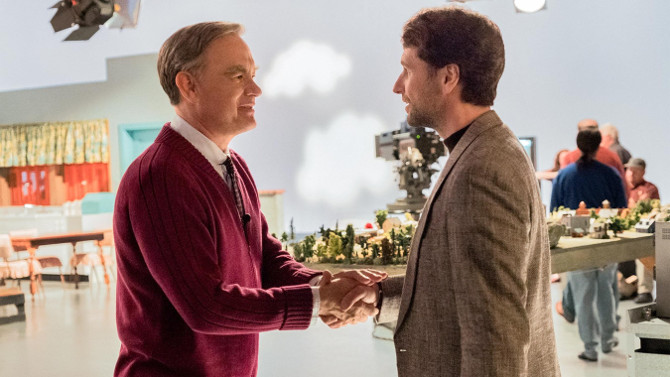
Take Note
A Beautiful Day in the NeighborhoodDecember 20, 2019Every once in a while, a feel good movie is just what is needed. Like a hot cup of cocoa, it can warm the heart, enliven the spirit, and bring comfort to the troubled brain. Just what the doctor ordered this 2019, A Beautiful Day in the Neighborhood, directed by Marielle Heller, reminds us just how important a man like Fred Rogers is – even eighteen years after his final episode aired (and sixteen years after his death). Based upon the article “Can You Say... ‘Hero’?” by Tom Junod (published in the November 1, 1998 Esquire magazine), it is a story that juxtaposes the harsh realities of an embittered, emotionally angry investigative journalist, Lloyd Vogel (Matthew Rhys – The Americans), with the kind-hearted soul of PBS childhood icon Mr. Rogers (Tom Hanks), it just happens that Lloyd’s editor, Ellen (Christine Lahti), feels like it is the perfect time for the man to pull back on the reigns and do a lighter bio-piece on the beloved man.
-

An Irishman in an Italian Landscape
The IrishmanDecember 8, 2019Oh, how times flies – first they were Goodfellas. . . now they’re old fellas. Martin Scorsese re-teams with Robert De Niro, Joe Pesci, and adds Al Pacino (shockingly, the two had never previously worked together) to the mix in the 2019 film The Irishman. All kidding aside, it is fascinating how time changes things. Twenty-nine years ago the triumvirate mentioned above worked together on Goodfellas, three forty-something’s on the top of their game. . . arguably still on their respective games, they are all now north of seventy-five.

